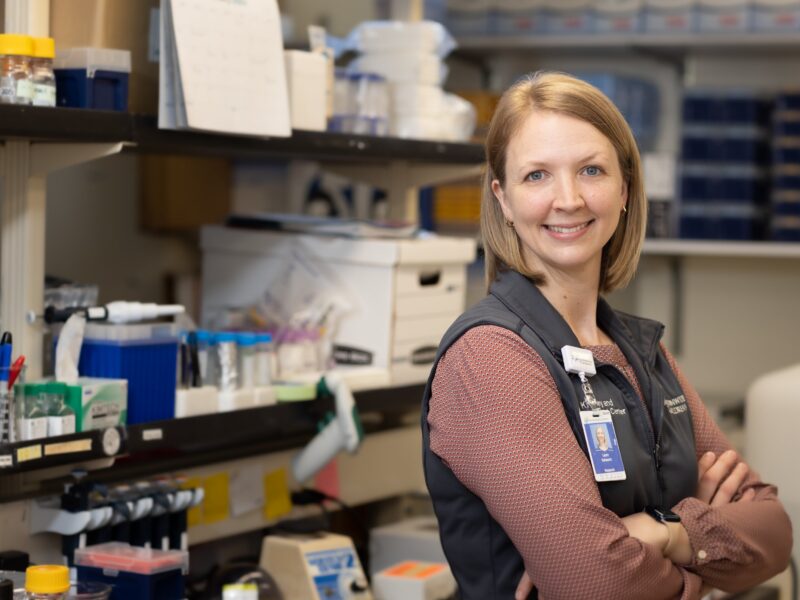Nephrology Education Ripe With Opportunities to Improve Health Equity
Nephrology Education Ripe With Opportunities to Improve Health Equity https://pediatricsnationwide.org/wp-content/uploads/2021/01/Ray-Bignall-1024x575.jpg 1024 575 Katie Brind'Amour, PhD, MS, CHES Katie Brind'Amour, PhD, MS, CHES https://pediatricsnationwide.org/wp-content/uploads/2021/03/Katie-B-portrait.gif
The Health Care Justice Committee of the American Society of Nephrology has released recommendations for incorporating anti-racism and social justice concepts into education and mentoring with the goal of improving health equity.
In 2020, leaders in the American Society of Nephrology (ASN) reached out to Ray Bignall II, MD, pediatric nephrologist and assistant chief diversity and health equity officer at Nationwide Children’s Hospital, about starting a Health Care Justice Committee (HCJC) that could explore and promote opportunities to drive greater health equity in the world of nephrology care and outcomes. Now, the HCJC has published its first recommendations on how principles of social justice and anti-racism should be incorporated into both formal and informal nephrology education.
According to Dr. Bignall, nephrology is a field of medicine ripe with opportunities to improve equity by addressing the causes of long-standing disparities in access and outcome: social determinants of health and structural racism.
“We have to appreciate that racism isn’t just an interpersonal problem or an individual’s character flaw, it’s also about how our systems unfairly disadvantage some people and unfairly advantage others,” says Dr. Bignall. “If we as a clinical community embrace the quest to address health disparities and inequities the same way we address unintended clinical harm — with the same humility and understanding for coworkers and the same passion to reduce harm — I guarantee we will see progress across the board.”
Dr. Bignall points to the recent improvements in equitable access to kidney transplant in the wake of adjustments to the algorithm for wait list status. Allotting points based on time since dialysis initiation rather than time since diagnosis, along with other adjustments, have erased a disparity that affected Black children awaiting kidney transplantation when compared to their non-Black peers.
There is similar progress to be made in many other areas of both pediatric and adult nephrology, Dr. Bignall says, and the way to facilitate these changes is not just a cultural or educational shift among nephrologists, but systematic collection of informative data.
The HCJC offers suggestions for better collecting and exploring the meaning of these data for clinical trials and nephrology research. The article reminds clinicians not to reduce the explanation for individual patients’ health to just race alone or solely to social determinants of health, but rather to use data to inform their understanding of the complex web of interconnected factors impacting patients’ individual health experiences.
In an effort to implement data-based decision-making, Dr. Bignall and his colleagues in the Office of Health Equity have launched the REaL Data initiative at Nationwide Children’s, which will gather data across all clinical departments of the hospital to enable identification and analysis of trends and opportunities related to race, ethnicity and language factors.
“In order to have a good feel of the landscape — what types of disparities we are looking at and where they exist — we are making an objective data map,” Dr. Bignall explains. “That’s really the only way to understand where to go to address disparities in care that may exist.”
The HCJC recommendations also offer practical tips for incorporation of social justice and anti-racism efforts into formal nephrology education, advocacy and research via tools such as the ASN Anti-Racism Toolkit and Coursera. Lead author Tanjala Purnell, PhD, MPH, founder and director of the Building Opportunities for Lasting Discoveries Health Equity Initiative at Johns Hopkins, and her co-authors, including Dr. Bignall, offer further suggestions for incorporating these concepts into day-to-day practice, such as encouraging grand rounds presenters to add a slide discussing how their topic intersects with social determinants of health or disparities, or by teaching residents to actively consider the societal, structural and race-based factors that may be affecting each patient’s health during hospital rounds.
Dr. Bignall is optimistic that the recommendations published by the ASN’s HCJC will result in widespread incorporation of these principles into formal nephrology curricula. Regardless of the way it ends up in education programs, he is adamant that the job of increasing nephrology’s focus on social justice and anti-racism belongs to everyone.
“Teaching about inclusivity and health equity in kidney health is everyone’s responsibility — physicians in patient care and academic medicine, advanced practitioners, nurses, dialysis companies, the folks at pharma and device companies, and researchers,” says Dr. Bignall. “It is our responsibility to foster cultural humility, competence and health equity in the way we treat patients and families, to ensure we understand these concepts, the existence and causes of health disparities, and how to eliminate them in kidney health.”
References:
- Purnell TS, Bignall ONR II, Norris KC; American Society of Nephrology Health Care Justice Committee Education Work Group. Centering anti-racism and social justice in nephrology education to advance kidney health equity. Journal of the American Society of Nephrology. Nov 2022;33(11): 1981-1984.
- Krissberg JR, Kaufmann MB, Gupta A, Bendavid E, Stedman M, Cheng XS, Tan JC, Grimm PC, Chaudhuri A. Racial disparities in pediatric kidney transplantation under the new Kidney Allocation System in the United States. Clinical Journal of the American Society of Nephrology. 2021 Dec;16(12):1862-1871.
Image credit: Nationwide Children’s
About the author
Katherine (Katie) Brind’Amour is a freelance medical and health science writer based in Pennsylvania. She has written about nearly every therapeutic area for patients, doctors and the general public. Dr. Brind’Amour specializes in health literacy and patient education. She completed her BS and MS degrees in Biology at Arizona State University and her PhD in Health Services Management and Policy at The Ohio State University. She is a Certified Health Education Specialist and is interested in health promotion via health programs and the communication of medical information.
- Katie Brind'Amour, PhD, MS, CHEShttps://pediatricsnationwide.org/author/katie-brindamour-phd-ms-ches/April 27, 2014
- Katie Brind'Amour, PhD, MS, CHEShttps://pediatricsnationwide.org/author/katie-brindamour-phd-ms-ches/April 27, 2014
- Katie Brind'Amour, PhD, MS, CHEShttps://pediatricsnationwide.org/author/katie-brindamour-phd-ms-ches/April 27, 2014
- Katie Brind'Amour, PhD, MS, CHEShttps://pediatricsnationwide.org/author/katie-brindamour-phd-ms-ches/April 28, 2014







